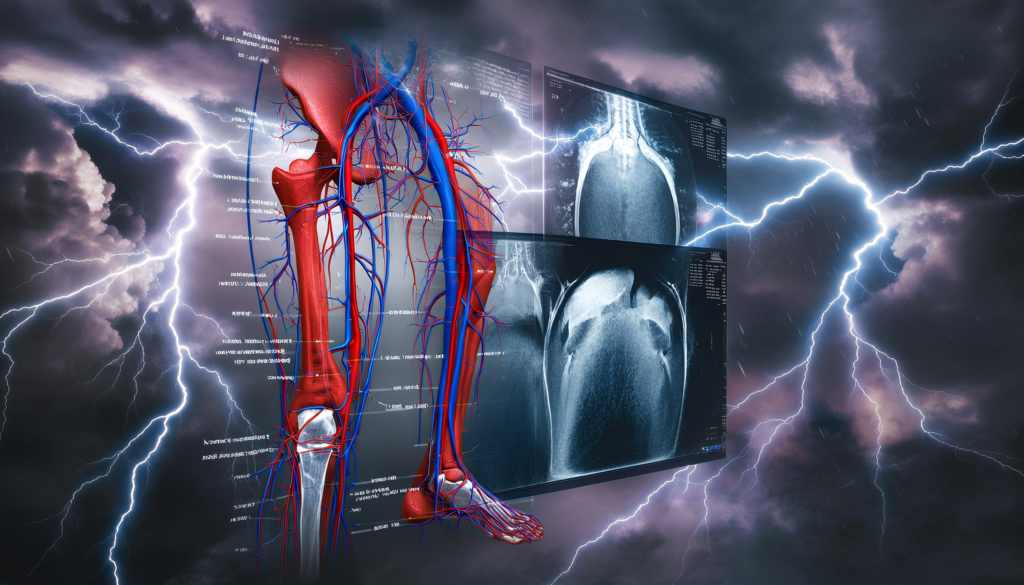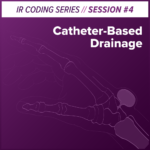I have been dealing with family issues since the end of September. My father-in-law (FIL) fell ill, and I have had to help out. Many of you also know my father is in a memory care unit, and I visit him daily and manage his affairs. I constantly wonder what people do if they don’t have a me. Today I am going to talk about how to be a healthcare advocate for another individual (I will refer to this as “your person.”).
The first thing you should do is get a notebook to keep ongoing records. Taking meticulous notes is critical. I suggest you start right now, before an acute incident occurs or as soon as you are recruited to be a medical advocate. Having an accurate medical history (past medical history, history of present illness) is very helpful for the healthcare provider (HCP). If something happens which leads to a medical encounter, document the sequence of events as you understand them. You will need to repeat them over and over again.
Your person needs to give HIPAA permission for you to be privy to their protected health information. If they are conscious and competent, they can do it verbally. The HCP should ask something like, “Is it ok if we discuss your condition in front of your daughter?” If the patient agrees, that is considered consent.
You might consider having a formal HIPAA release form signed so the healthcare providers know you are entitled to be engaged in healthcare discussions. A sample is found here: https://www.hipaajournal.com/hipaa-release-form/. My interpretation is that Section I should have “anyone”, and Section IV should have your name and information. Again, do this proactively – once your person is unconscious, it is too late. Have a printed physical copy and a digital copy in a cloud somewhere.
Arrange to have electronic access to their portal if you can. It is great to be able to access a medication list, notes from prior visits, names of physicians, etc. on the fly.
Being an advocate, you will be exposed to information about your person that they might want kept confidential. You should consider it your duty to keep anything you hear or witness private unless your person allows you to share it (e.g., you are the family contact person).
What if your person makes plans set out in a living will? That’s great; they are expressing their wishes, but living wills are legal documents specifying decisions if a person becomes terminally ill or permanently unconscious. It is also useful to have a durable power of attorney for health care (DPOAHC). This document names surrogates who are given permission to make all medical decisions for the individual in the case that they deemed not competent to make their own decisions, but the patient doesn’t necessarily need to be terminally ill or in a vegetative state. The healthcare proxy is supposed to make decisions according to their understanding of what the patient would want. The living will often helps guide their decisions. These documents should be crafted long before they are needed. If you wait too long, it may be too late. If you are the DPOAHC, you have the legal authority to make medical decisions for the patient if the patient is not capable of making their own decisions, as opposed to just sitting in and giving advice as an advocate.
As an advocate, you may consider requesting permission to record discussions with doctors. 50-80% of medical information provided by HCPs is forgotten immediately after the interaction. Explain you have a concern that you will not understand all of the jargon or not be able to remember the details. Many states permit you to record even without the other party’s consent, but not all; in any case, providers would appreciate the heads up. Cell phones are ubiquitous; if legally permissible, you can use ‘voice memos’ or some other function that can record audio.
When you take notes in your notebook, try to make them as legible as possible. My sister-in-law and I were tag-team advocating for my FIL, so the notebook was communal as we switched off. If there are details that you want to be able to recall from home without access to the notebook, take a picture on your phone or take notes from the notes.
What should be in the notes? Write down the date and time of the interaction, the HCP’s name and specialty, and what they say. They often use doctor-speak and if you are not clinical, it can be confounding. DO NOT HESITATE TO ASK FOR CLARIFICATION! Do not feel stupid or silly or like you are bothering them. The point is for you and the patient to understand what is going on and to be able to make informed decisions about their care. Read back what you understood the provider to have said and what you documented, to ensure accuracy. If you can’t spell something, ask the clinician to spell it for you. Most likely, you will want to confer with Dr. Google later.
You should try to take yourself out of the equation and ensure that it is all about the patient. Start sentences off with “The patient needs to know…” to keep it patient-centric.
Don’t reserve note-taking for the doctors or nurse practitioners. Take notes when you speak to the case managers or the physical therapist or the nurses. If your person is left in bed calling for a nurse for 35 minutes, that is important information. Is it a once-off or a pattern of neglect? Is it a single individual or the entire staff? If there is an adverse interaction, try to take direct quotes as opposed to paraphrasing.
Don’t divide your attention. When the HCP is in the room, don’t look at your phone to review texts or scroll through social media. Don’t be chatting with someone else. You will have a limited amount of time with any given practitioner; don’t squander it.
Speaking of which, many providers have a routine as to when they round. If you can, find out what it is and try to be present when they do. If you can’t be there then or their rounding is unpredictable and you missed their visit, ask the nurse to page them and request them come at their convenience to talk to you and the patient again.
I think one of the most important roles an advocate has is to educate the HCP as to the patient’s baseline. As an emergency physician, I saw patients at their most vulnerable and worst times. It was crucial for someone to let me know that this patient with metabolic encephalopathy from overwhelming sepsis was driving and calculating his taxes two days before presentation. It helps inform expectations for recovery.
If you have a question, ASK IT! You don’t want to have that little detail be the reason something untoward happens when it is not addressed, like you noticed your person’s speech was garbled for 5 minutes after they got back to the bed from the bathroom but no one else witnessed it, or “Why hasn’t he gone to the bathroom for the last 10 hours while I’ve been here? I’ve had to go twice.” (The answer was he had urinary retention and there was 1400 cc of urine in his massively distended bladder) “Why is my father’s pacemaker pocket red?” led to the discovery of a pacemaker infection. If I had assumed they had noticed it and not asked…
Be tuned in to your person. If they get a quizzical look on their face, ask the provider to repeat whatever just confused them. If they are hard of hearing and you are familiar with the behavior of them saying they heard you when they didn’t, ask the provider to speak louder and more slowly (I also taught a nurse the trick of the poor-man’s hearing aids. You flip a stethoscope around, put the earpieces into the patient’s ears, and speak into the diaphragm). If there is a language barrier, it is not your responsibility to translate. The patient has a right to translation services. Exercise that. It is your job to advocate for your person, not to translate for the staff.
There are certain basic issues which need to be addressed. Make sure you bring the hearing aid charger and remind the nursing staff to charge hearing aids overnight. It is exasperating for your person to not be able to hear because their hearing aids are dead. It is a reasonable expectation that dentures will be removed and cleansed overnight. Bring a long charging cord for your person’s phone so they can have it charging and can reach it whether they are in the bed or the chair. Bring wipes to clean glasses, a glasses case for night-time, and encourage the nursing staff to make sure their glasses are on their face in the morning. Make sure everything is labeled. If you don’t have access to a label maker or Sharpie, you could ask the nurse for a hospital sticker and use that.
My FIL was becoming psychotic because his day-night cycles were all confused. His room had a window into a central enclosed atrium so there were no light cues as to time of day. There was a remote-controlled electronic window shade for privacy which made it look like nighttime, which was often left in the down position. I purchased him a digital clock “for dementia patients” (although he doesn’t have dementia) which has a visual cue as to time of day (morning, afternoon, night).
One of the most important things an advocate can do is ensure that basic hygiene needs are attended to. Patients need to brush their teeth and shave. The advocate doesn’t need to perform these tasks, but they can ensure that the nursing staff does. Make sure the electric razor is charged, and the charger and razor are labeled. I kept chargers (e.g., razor, phone) corralled in a canvas bag.
As an aside, take care of yourself, too. Bring a water bottle, your cell phone charger, and snacks. Bring a sweater or jacket because it may be chilly or hot in the patient’s room. Bring a book or work because there is likely to be down-time while your person dozes.
It is critical that the patient mobilizes as soon as it is safe, and they are able. The difference between being discharged to home or going to a rehab facility can be getting up and moving around. It is easier for aides to use devices to get the patient to the bathroom or only having them transfer 3 steps to a chair. It takes more time to walk the patient to the bathroom or out into the hallway, and all facilities are understaffed. You might think that physical therapy will effectuate this, but often their role is to assess the patient’s function for discharge planning purposes. They may only see the patient once or twice in a stay. If you are capable and it is safe to do so, get your person up and around as soon as possible.
Most of the points I am making were my observations and thoughts from my own experience. However, I did some research and was reminded that it is a great practice to ask anyone preparing to touch your person to wash their hands (Tips for the Advocate When Talking to the Doctor (or another clinician). Regarding their checklist, I personally wouldn’t ask my person if I should ask the question; I would phrase it as, “Is it ok with you if I ask clinicians to wash their hands before they touch you, because there are many unnecessary deaths from hospital-acquired infections every year?”
If you have a healthcare provider in your life, e.g., your brother is a paramedic, your aunt is a doctor, your friend is a nurse, now is the time to ask them to help you make sense of what is going on. They may be able to give you insight or advice. They may lead you to a website or society which can be helpful. I also recommend making sure that your person’s primary care physician or other caregiver is aware of the situation. They may have information useful to the current HCP.
The last thing I would like to address is examples of questions you might be thinking about and asking:
- Do we know why this is happening now?
- The last time this happened, they had to do [X procedure] or they gave her [X medication]. Do they need it again?
- Could this be medication related? Could this be related to the new medication that was started last week?
- What did the tests show? What do those results mean? Can the patient have a copy of those reports/tests?
- Do we need a [specialty] consultant to see him here in the hospital?
- You said you were going to start him on [medication X] yesterday? Did he get his first dose of it? How long before we should see effects?
- Could we try removing the Foley catheter and see if he can void spontaneously prior to transfer to rehab?
- What exactly is the diagnosis? What is the prognosis?
- When do you think she will be discharged? I know PT recommended a skilled nursing facility, but could it be accomplished safely at home with home health care?
It would be optimal for everyone to have an advocate as they try to navigate the morass which is our healthcare system. I hope this article will give you some tips on how to be an advocate for your person. I wish you all the best of luck.
References:
Patient Advocate Checklist
Step 5: Use and Advocate, Be an Advocate for Others
Joint Commission: Use and Advocate or Be an Advocate for Others
EDITOR’S NOTE:
The opinions expressed in this article are solely those of the author and do not necessarily represent the views or opinions of MedLearn Media. We provide a platform for diverse perspectives, but the content and opinions expressed herein are the author’s own. MedLearn Media does not endorse or guarantee the accuracy of the information presented. Readers are encouraged to critically evaluate the content and conduct their own research. Any actions taken based on this article are at the reader’s own discretion.













